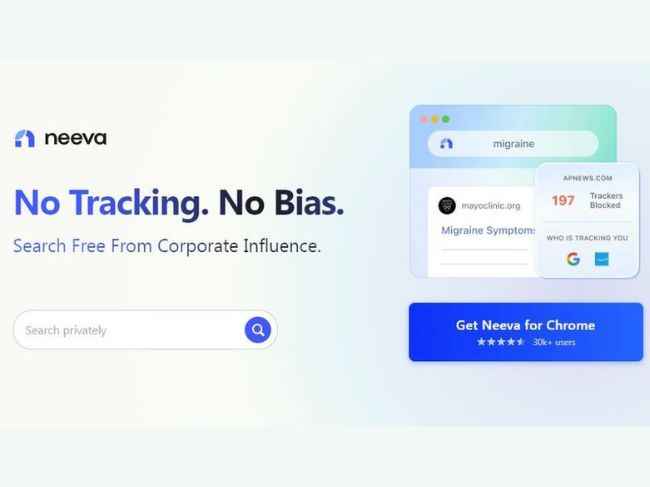Googles ex-SVP releases his ad-free search engine Neeva in Europe: What is special about it
The ad-free search engine Neeva, founded by ex-SVP of Google Ads, Sridhar Ramaswamy, is now operational in Europe. Initially, the user-first platform was launched in the United States last year, and since then, it has gathered over 600,000 monthly users. The search engine’s Europe expansion follows a $40 million funding round from investors like Sequoia Capital, Greylock Ventures and more.
How does Neeva plan to compete with Google?Per the press release on Business Wire, Neeva was launched in Europe on October 6, 2022, to rival popular search engines by offering “honest search results, no tracking, and with absolutely no advertisements of affiliate links.” Given that Google already dominates more than 90% of the search engine market, it is evident that Neeva has an uphill task competing with the search giant. The ad-free search engine states that “the ad-supported internet has created vastly misaligned incentives that have made big technology monopolies and advertisers richer while exploiting the privacy and personal data of users.”
Neeva claims that it offers lightning-fast results with “high levels of accuracy,” eliminating the sponsored content prevalent on other search engines like Google. Currently, Neeva offers a freemium model to European users, releasing its private, ad-free services in the region.

When the search engine gets decent traffic, it plans to release its premium subscription with features such as VPN and password manager.
Neeva also allows users to synchronise apps like email, Dropbox, Slack and more so that users can easily search across their documents without compromising their privacy.
What’s Neeva primary advantage over other search engines?The primary advantage of using Neeva seems to be the anonymous browsing ability and an ad-free experience. The search engine says that it creates its search stack by crawling, indexing and getting back results from billions of web pages. Further, it does that without annoying ads that push down the organic search results on platforms like Google. For those who are catching up, search engines use a lot of trackers to monitor the digital behaviour and habits of a user. They then uses this information to show personalised or targeted ads, which result in revenue generation for the stakeholders.
For more technology news, product reviews, sci-tech features and updates, keep reading Digit.in.
Post a Comment